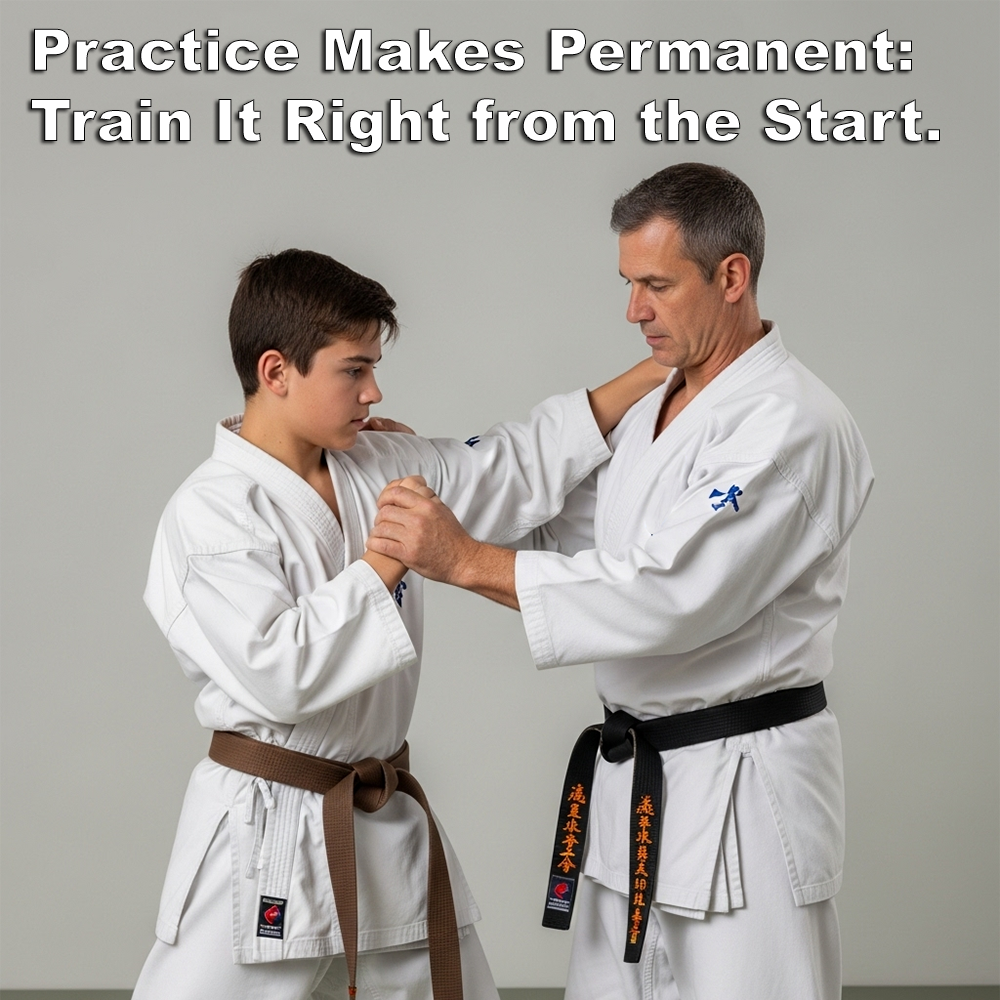
(Approx 1 minute 55 second read)
“Practice makes perfect.” How many times have you heard that to motivate you?
.
The problem is, the phrase isn’t quite right. Practice doesn’t make perfect. It makes permanent.
.
It should really be: Perfect practice makes perfect.
.
Karate is known for its repetition. How often have you heard an instructor say, mō ichi do – one more time? The idea is simple: repeat it until it becomes second nature. But that only works if what you’re repeating is actually useful.
.
Muscle memory is built by repetition, but if you’re doing something wrong, all you’re doing is embedding the mistake deeper. And when you need it most, that’s what will come out.
.
That’s why training drills that only work in the dojo, with a compliant partner who plays along, can be dangerous. They reinforce movements that don’t translate into pressure or reality.
.
I often hear, “But it’s okay for beginners.” Well, no. It’s the same for them too. If someone’s goal is self-protection, then they should be given drills that reflect that goal – from day one. Scaled back, yes. Safer, yes. But still grounded in reality.
.
Otherwise, it’s like teaching someone to drive in an automatic for years, then handing them the keys to a manual and expecting them to just figure it out. That gap in training has consequences.
.
Train the right way from the start. Don’t save realism for later. Later might come too late.
.
That’s not about expecting perfection from beginners. It’s about responsibility. What we repeat becomes who we are under stress. And if we’re serious about karate as self-protection, then what we pass on – especially at the beginning – matters more than you may like to admit.
.
This applies to children too. Too often, unrealistic drills are justified because they’re “just kids”. But those early lessons shape habits and expectations.
.
Passing on unrealistic training now, with plans to fix it later, in my opinion, isn’t good enough – it’s lazy. Give them something real – age-appropriate, yes, but still functional. The right way doesn’t have to be brutal. It just has to be honest and in the right context.
.
Early training sets the standard. If that standard is low, don’t be surprised by the result. And just because it may take years for the cracks to show is no reason to ignore them.
.
There are so many reasons you can come up with not to do something well – not to do it right the first time. But there’s only one reason to do it right: it matters.
.
You don’t raise standards by starting low – and a mistake taught early becomes a reflex later. Teach it the right way from the start.
.
.
Written by Adam Carter
